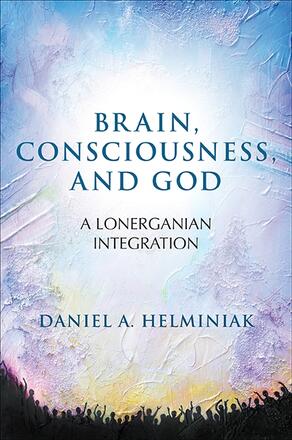
Brain, Consciousness, and God
A Lonerganian Integration
Alternative formats available from:
A constructive critique of neuropsychological research on human consciousness and religious experience that applies the thought of Bernard Lonergan.
Description
Brain, Consciousness, and God is a constructive critique of neuroscientific research on human consciousness and religious experience. An adequate epistemology—a theory of knowledge—is needed to address this topic, but today there exists no consensus on what human knowing means, especially regarding nonmaterial realities. Daniel A. Helminiak turns to twentieth-century theologian and philosopher Bernard Lonergan's breakthrough analysis of human consciousness and its implications for epistemology and philosophy of science. Lucidly summarizing Lonergan's key ideas, Helminiak applies them to questions about science, psychology, and religion. Along with Lonergan, eminent theorists in consciousness studies and neuroscience get deserved, detailed attention. Helminiak demonstrates the reality of the immaterial mind and, addressing the Cartesian "mind-body problem," explains how body and mind could make up one being, a person. Human consciousness is presented not only as awareness of objects, but also as self-presence, the self-conscious experience of human subjectivity, a spiritual reality. Lonergan's analyses allow us to say exactly what "spiritual" means, and it need have nothing to do with God.
Daniel A. Helminiak is Professor of Psychology at the University of West Georgia. He is the author of many books, including Religion and the Human Sciences: An Approach via Spirituality and The Human Core of Spirituality: Mind as Psyche and Spirit, both also published by SUNY Press.
Reviews
"Present interest in neuroscience and questions about the brain make Helminiak's supremely readable new book especially timely … if the monograph turns over more stones than perhaps it needs to in order to make its point, it is also to be praised for its mastery of the material and ingenuity in communicating through illuminating examples. [Helminiak] is an expert teacher, and his book offers an important lesson to a field badly in need of instruction. " — Theological Studies
"This book makes a seminal contribution to the psychology of religion and is on the cutting edge of the growing interest in the spiritual dimensions of human beings. Daniel Helminiak writes knowledgeably about neurobiology, psychotherapy, philosophy, and even psychedelic experience. His chapter on the 'God' concept is a tour de force and worth the price of the entire book. Once I started this book, I could barely put it down. " — Stanley Krippner, Saybrook University
"This is an amazing book. It is both lucid and brilliant. Deeply informed by Bernard Lonergan's systematic treatment of human knowing as a composite of experience, understanding, and judgment, Daniel Helminiak masterfully places study of spirituality within the self-transcending dimension of the human mind and in so doing differentiates and interrelates neuroscience, psychology, spirituality, and theology. " — Ralph W. Hood, University of Tennessee at Chattanooga
"In this book, magnificently and comprehensively Helminiak struggles toward an integrated perspective on the unfolding of the universe. Focused on humanity, his topic is actually the origins and dynamics of human yearning. As best he can, he meets contemporary theorists on their own ground and repeatedly nudges their thinking toward a more coherent position. The result cuts both ways. It challenges students of Lonergan who underappreciate natural and social processes, and it challenges natural and social scientists who seek a science of mind while subtly sidestepping their inquiring selves. Yet Helminiak presents only a seedling. Its full bloom would be Lonergan's new, global, omnidisciplinary science, envisaged in Method. It does, indeed, qualify as Patricia Churchland's sought 'real humdinger of a solution. '" — Philip McShane, author of Randomness, Statistics and Emergence
"Intense, yet lucidly clear, this work by Daniel Helminiak provides a sequel to Michael H. McCarthy's The Crisis of Philosophy. Helminiak turns a laser on the crisis and not only exposes significant counterpositions, but also offers a solution using the intellectual epistemology of Bernard Lonergan. Worth a read by anyone seeking real explanation rather than mere description, this work invites readers to be weaned from picture-thinking to claim the reality of their intelligence, whatever their field. " — Carla Mae Streeter, Aquinas Institute of Theology